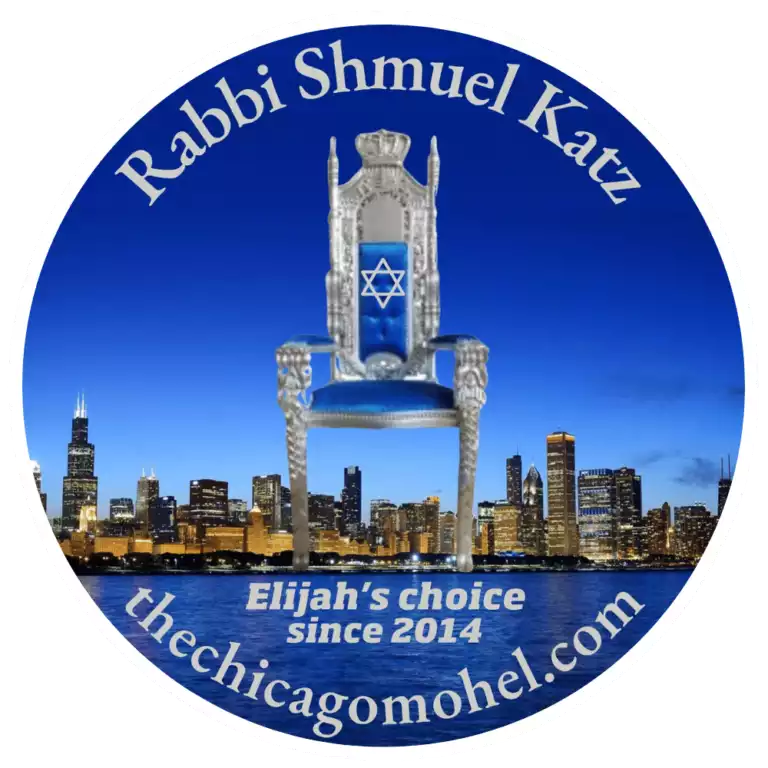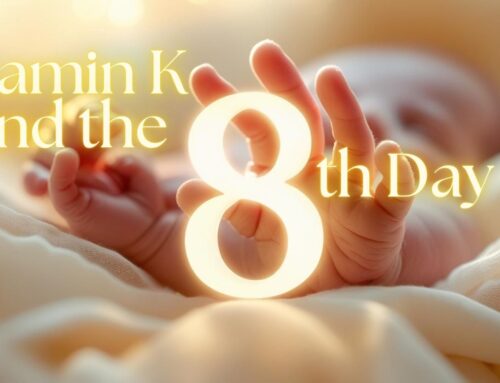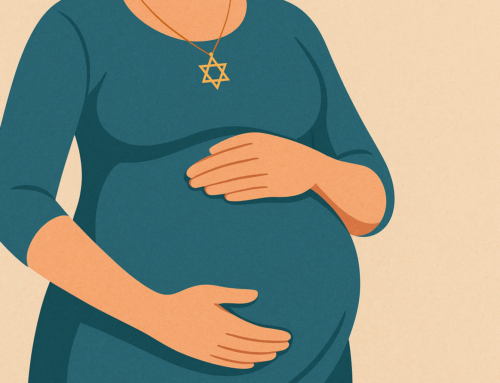Circumcision Stories: Why Families Choose Rabbi Shmuel Katz for Circumcision
Rabbi Shmuel Katz is an Orthodox Jewish Mohel based in Chicago, Illinois. Many families from various backgrounds and religions turn to Rabbi Katz for circumcision.
Now, you might be wondering why families from such varied backgrounds choose an Orthodox Jewish Mohel for their son’s circumcision. It’s easy to understand why Orthodox Jews turn to Rabbi Shmuel Katz—many know him personally from his insightful shiurim (Torah classes) or have seen his skilled hands perform a Bris Milah within their community. But for families of other faiths and backgrounds, why opt for an Orthodox Jewish Mohel over a doctor in a hospital?
The short answer can be summed up in one word: experience. As a Mohel specializing exclusively in circumcision, Rabbi Katz has performed far more procedures than the average doctor in a hospital—many of whom may have limited experience beyond medical training, and some who are still learning under supervision. The precision, efficiency, and comfort that come with expertise are invaluable to parents seeking the best possible outcome for their child.
But for many, it’s about more than just experience—it’s about the meaning and symbolism that circumcision represents. It is a practice much deeper than a routine medical procedure. To truly understand why so many turn to a Mohel for this sacred milestone, let’s take a deeper dive into the history of circumcision and its significance across cultures.
A Covenant Rooted in Biblical History
The origins of circumcision trace back to Abraham, the forefather of Judaism, Christianity, and Islam. In Bereishis (Genesis 17:10-14), God commands Abraham to circumcise himself and all male descendants as an eternal sign of their covenant. This act was not merely a physical alteration but a declaration of faith, obedience, and spiritual refinement.
For Jews, the brit milah (circumcision ceremony) is a mitzvah performed on the eighth day of a baby boy’s life. The number eight signifies something beyond nature—elevating the physical toward the Divine. The Torah (Leviticus 12:3) explicitly commands circumcision on the eighth day, a practice that has endured for millennia.
Islam also holds circumcision, or khitan, in high regard, tracing its practice to Ishmael, Abraham’s firstborn. It is seen as an act of purification and a demonstration of submission to God’s will. Christianity, while no longer mandating circumcision, acknowledges its historical importance. Many Catholics choose circumcision for their sons, stating that even Jesus was circumcised on the eighth day.
Across the Abrahamic religions, circumcision remains a powerful symbol of faith, identity, and divine connection.

A historical depiction of Abraham preparing to perform the first circumcision (face blurred as we don’t truly know what he looked like).
The Spiritual and Philosophical Meaning of Circumcision
Circumcision is not only an external mark but a profound act of spiritual refinement. Jewish thought explains that the world was created imperfect, and humanity’s role is to elevate it. The foreskin symbolizes excess—an outer covering that, when removed, reveals a deeper potential for holiness.
The concept of klipa in Jewish mysticism describes layers that obscure the soul’s true essence. By performing circumcision, we remove a physical and spiritual barrier, unlocking the potential within. This act mirrors a larger spiritual journey—striving to refine ourselves and live a life of purpose and connection with the Divine.
Many parents who choose circumcision feel a deep sense of continuity, knowing that their son is part of an unbroken chain of tradition that stretches back to Avraham Avinu. I have personally witnessed families moved to tears as they reflect on the significance of this moment—not just for their child, but for generations before and after them.

Rabbi Katz preparing to perform a brit milah with family and friends gathered around.
Medical and Hygienic Benefits of Circumcision
Beyond its religious significance, circumcision has been linked to numerous health benefits, as supported by extensive medical research. According to the Centers for Disease Control and Prevention (CDC), circumcised males experience:
- Lower risk of urinary tract infections (UTIs) in infancy
- Reduced risk of sexually transmitted diseases (STDs), including HIV
- Decreased likelihood of penile cancer
- Lower incidence of phimosis and balanitis, conditions related to foreskin infections
Studies published in the Journal of the American Medical Association (JAMA) have shown that circumcision can reduce HIV transmission by up to 60% in heterosexual men. Research from the World Health Organization (WHO) also supports these findings, highlighting circumcision as a key preventative health measure in certain regions.
Additionally, the removal of the foreskin eliminates a potential breeding ground for bacteria, yeast, and other infections. Maintaining cleanliness is easier, reducing the risk of inflammatory conditions that can develop when the foreskin traps moisture and debris.

A medical infographic illustrating the health benefits of circumcision.
Timing: Why the Eighth Day Matters
While circumcision can be performed at any age, Jewish tradition specifically prescribes the eighth day. For all families, regardless of religion, it advised to circumcise within the first month. Beyond its spiritual significance, there is also a scientific explanation for the timing the circumcision on the 8th day.
On the eighth day of life, a newborn’s Vitamin K levels naturally peak, aiding in blood clotting. Medical research confirms that this is the optimal time for a procedure with minimal bleeding and quick healing. Circumcision in the first month of life is also generally easier on the baby, as their nerve endings are less developed, reducing sensitivity to discomfort.
Vitamin K plays a crucial role in blood clotting by aiding in the production of prothrombin, a key protein involved in the coagulation process. Without sufficient Vitamin K, the body cannot produce adequate levels of prothrombin, leading to increased bleeding risks. This is particularly relevant for newborns, who have naturally low Vitamin K levels, which is why a Vitamin K injection is commonly given at birth to prevent excessive bleeding, including complications from circumcision. On the eighth day, the amount of prothrombin present actually is elevated above one-hundred percent of normal—and is the only day in the male’s life in which this will be the case under normal conditions.

Diagram showing the peak of Prothrombin on the 8th day, the ideal day for circumcision.
How Circumcision is Performed
A mohel — a trained specialist — performs circumcision with great precision. Unlike hospital circumcisions, which often use clamps or sutures and can take several minutes, a mohel uses an extremely sharp blade, completing the procedure in just seconds. The quickness and precision minimize discomfort for the baby.
The sharpness of the blade is crucial. A clean, swift cut ensures minimal trauma to the surrounding area, making the experience as gentle as possible. Parents are often amazed at how calm and comfortable their baby appears immediately after the procedure.

Rabbi Katz explaining the process before the circumcision.
Aftercare: Ensuring a Smooth Recovery
Proper aftercare is essential to ensure quick and comfortable healing. Thankfully, it is simple and involves just a few key steps:
- Apply petroleum jelly at each diaper change to prevent friction and maintain a barrier between the penis and fecal matter.
- Keep the area clean with a daily bath and gentle use of baby wipes.
- Change the diaper regularly to prevent friction against a full diaper.
Healing typically occurs within 7 to 14 days, with minimal discomfort. Babies generally continue feeding and sleeping as usual, showing little distress post-procedure.
If you choose Rabbi Katz as your mohel, he will provide you with a clear step-by-step guide to aftercare and will ensure you are comfortable and confident in being able to properly care for your baby.

Common Concerns and FAQs about Circumcision
- Does circumcision affect sensitivity?
Studies indicate that circumcision does not significantly impact sensitivity or pleasure in adulthood. While the foreskin contains nerve endings, the removal of excess skin does not diminish function or satisfaction.
- Is circumcision medically necessary?
While circumcision is not an absolute necessity, many doctors and health organizations—including the American Academy of Pediatrics (AAP)—recognize its benefits for hygiene and disease prevention. Many parents choose it as a proactive health measure for their sons.
- What is the difference between a hospital circumcision and a brit milah?
A hospital circumcision is performed by a doctor and may involve clamps, anesthetics, and a longer healing process. In contrast, a brit milah is a precise, swift procedure performed by a mohel with deep religious significance. Many parents prefer a mohel due to their expertise and the seamless experience they provide.
Final Thoughts: The Power of a Meaningful Choice
Circumcision is a decision that carries both spiritual depth and medical benefits. It has been practiced for thousands of years, standing as a testament to faith, identity, and well-being. Whether for religious devotion, cultural continuity, or health benefits, circumcision remains an enduring and meaningful tradition—one that bridges the past, present, and future.

Happy family after Rabbi Katz performed their son’s circumcision.
A Mohel for All: Parents Share Their Stories
As a mohel, I have had the privilege of working with families from many different backgrounds—Jewish, Muslim, and Catholic—each with their own unique reasons for choosing circumcision for their sons. Some seek to fulfill a religious commandment, others value the health benefits, and many want a more personal and comfortable experience than what a hospital can offer. Regardless of their background, I am honored to be part of this important milestone in their child’s life. Here are some of their stories, shared with their permission.
David and Miriam – A Jewish Family’s Journey
“As observant Jews, my wife and I always knew our son’s brit milah would be one of the most important moments of his early life. It was a mitzvah we had anticipated since we first learned we were having a boy. When the time came to choose a mohel, we turned to our friends and Rabbi at our local synagogue for recommendations. Several families pointed us to Rabbi Shmuel Katz, speaking highly of his precision, warmth, and knowledge.
From our first conversation, Rabbi Katz put us at ease. He explained every step of the process, from the religious significance to the practical aftercare. The ceremony itself was deeply moving—he led the blessings with such sincerity, and his expertise made the procedure swift and nearly painless for our son. Afterward, he checked in with us multiple times, ensuring our baby was healing well. We are beyond grateful for his guidance and skill and will recommend him to every Jewish family we know.”
Aisha and Omar – A Muslim Perspective
“In Islam, circumcision (khitan) is a tradition that carries both religious and hygienic benefits. My husband and I wanted to ensure that our son’s procedure was performed with skill and care, but finding the right person wasn’t easy. We considered a hospital circumcision, but after researching, we realized that having a mohel perform it would be much quicker, gentler, and allow us to be in the room.
A friend from our local Muslim parenting group recommended Rabbi Katz, praising his experience and respect for different faiths. At first, we were unsure—could a Jewish mohel accommodate our Islamic traditions? Our concerns disappeared after speaking with him. Rabbi Katz welcomed our questions, respected our customs, and assured us that he had assisted many Muslim families before.
The procedure was over in seconds, and our son barely cried. Rabbi Katz gave us thorough aftercare instructions, and the healing process was smooth. His professionalism and kindness exceeded our expectations, and we are grateful to have found him.”
Michael and Sophia – A Catholic Family’s Experience
“It’s an interesting question to answer why we chose to circumcise our son. Culturally, both of our families are circumcised, but I don’t know if its necessarily religious in nature or not. Unlike in Judaism or Islam, circumcision isn’t a religious requirement in Catholicism. However, outside of the cultural aspect of having my son look like me down there (as funny as that sounds) my wife and I also wanted our son circumcised for medical and hygiene reasons. We read about the the health benefits—reduced risk of infections and STDs—and felt it was the best choice for him.
At first, we assumed the only option was a hospital circumcision. But after hearing from my sister (who had her son circumcised by Rabbi Katz), we decided to explore the possibility of having a mohel perform it instead. The idea of a more personal, quick, and expert-led procedure appealed to us, so we reached out.
Rabbi Katz was incredibly welcoming and informative. He reassured us that while he primarily performs circumcisions for Jewish families, he has worked with thousands of non-Jewish parents who wanted the best experience for their sons. The procedure was seamless, and the aftercare was simple and stress-free. Looking back, we are so glad we went this route—it was a much more personal and comfortable experience than what we expected from a hospital setting.”
A Trusted Mohel for All
Each of these families came from different religious and cultural backgrounds, yet they all found what they were looking for: a highly skilled mohel who combines tradition with professionalism, expertise with compassion. Whether through a Google search, a friend’s recommendation, or a referral from a midwife, they all arrived at the same conclusion—Rabbi Katz was the right choice for their family.
If you are considering circumcision for your son, whether for religious, cultural, or medical reasons, I would be honored to be part of this special moment for your family. My goal is to provide a meaningful, safe, and comfortable experience for every child and parent I serve.
Contact Rabbi Katz for your son’s circumcision
If you would like to learn more or schedule a circumcision, feel free to reach out to me directly:
📞 Phone: 347-794-6322
📧 Email: thechicagomohel@gmail.com
🌐 Website: thechicagomohel.com
I am happy to answer any questions and guide you through this meaningful process with care and expertise.




